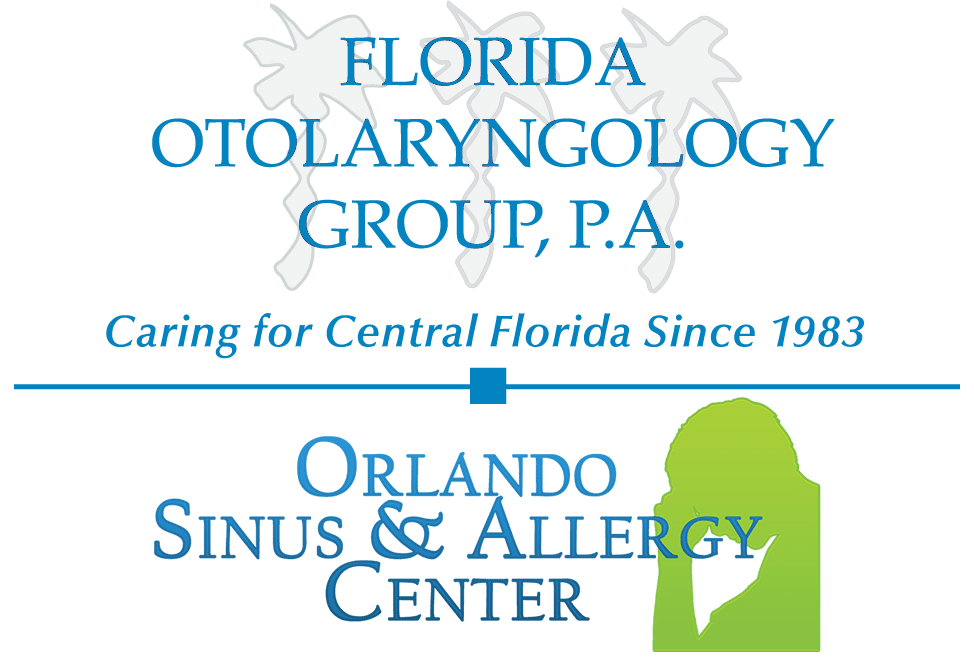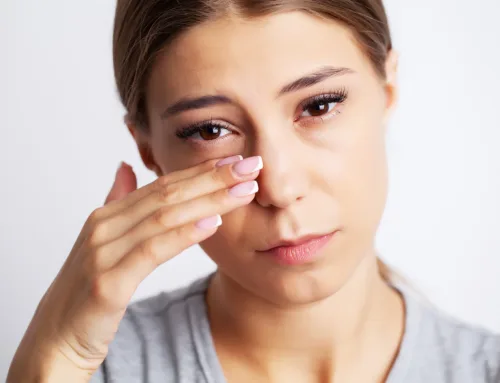Nasal polyps are non-cancerous growths that develop along the lining of your nasal passages and sinuses. They are soft, painless, and are often caused by chronic inflammation that occurs due to recurring allergies, infections, drug sensitivity, or certain immune disorders. While not all polyps will cause symptoms, larger ones that become irritated can lead to breathing problems, chronic infections, and a loss of taste or smell.
Who Do They Impact?
Mostly adults who are aged 30-40, and have some form of consistent inflammation in the nasal passages. Individuals with asthma, allergies, chronic rhinosinusitis, cystic fibrosis, and repeat infections are more likely to develop nasal polyps.
Nasal Polyps & Allergies: Causes & Symptoms
When the mucous membranes that line the nasal passageways and sinus cavities become inflamed repeatedly or over a long period of time, nasal polyps can develop. The cause behind this is linked to infections and allergic reactions, as these incidents cause inflammation, redness, and fluid buildup in the passageways. The inflammation can then cause small, fluid-filled growths to develop, which turn into polyps.
While you may not have symptoms at first, as your nasal polyps grow, you may experience:
- Nasal congestion & drainage (stuffy or runny nose).
- Nosebleeds.
- Snoring.
- Headaches.
- Pain or pressure in the sinus cavities or along the top of your face, forehead, or pain in the upper teeth.
- Loss of taste or smell.
- The need to constantly clear your throat (postnasal drip).
- Frequent/increased asthma attacks.
- Trouble sleeping.
Are There Ways to Prevent Nasal Polyps?
While there is no sure-fire way to prevent them, following the recommended strategies below may reduce your risk of developing them.
- Take asthma and allergy medication as recommended.
- Use a humidifier to reduce air dryness.
- Avoid environmental areas with airborne irritants or allergens.
- Use a saline nasal rinse to remove irritants from the nasal passageways.
- Engage in excellent hygiene & cleaning routines for your home and vehicles.
In doing the above, you can reduce your exposure to allergens that cause inflammation in your sinus cavities and nasal passageways.
What Does Nasal Polyp Treatment Look Like?
If your nasal polyps are a result of allergies, then treatment will include managing and addressing the underlying allergies with either medication or with outpatient surgery.
There are 5 common courses of treatment for nasal polyps, which are:
- Topical nasal steroid sprays. This shrinks the polyps & improves symptoms.
- Antihistamines (oral pills) that relieve allergy symptoms.
- Allergy Immunotherapy (injections) that deliver targeted Dupilumab, an antibody for allergic diseases like polyps.
- Stent Placement. This is an outpatient surgery that places a small stent into your nasal passageway which opens it up and delivers medication to the area.
- Polyp Removal via Endoscopy. An outpatient surgery that removes the polyps when other treatment options have been unsuccessful.
If you have an infection due to untreated nasal polyps when you come in for your treatment procedure, we may also administer antibiotics to help alleviate the infection.
How Are They Diagnosed?
If you suspect that you have nasal polyps, please reach out to us and book a consultation. We will take a detailed medical history and ask you about past infections or current allergies that you have. Our healthcare providers will outline common symptoms, ask if you have experienced any of them, and we will take a look inside your nose with a nasal endoscope.
A CT scan will help us get a better picture of the inside of your sinus cavities and nasal passages to determine the extent of your nasal polyps.
Will I Need Repeat Treatment for Nasal Polyps?
Unfortunately, nasal polyps can come back after treatment. If this happens to you, we can discuss surgical options for nasal polyp removal or longer-term steroid treatment.





